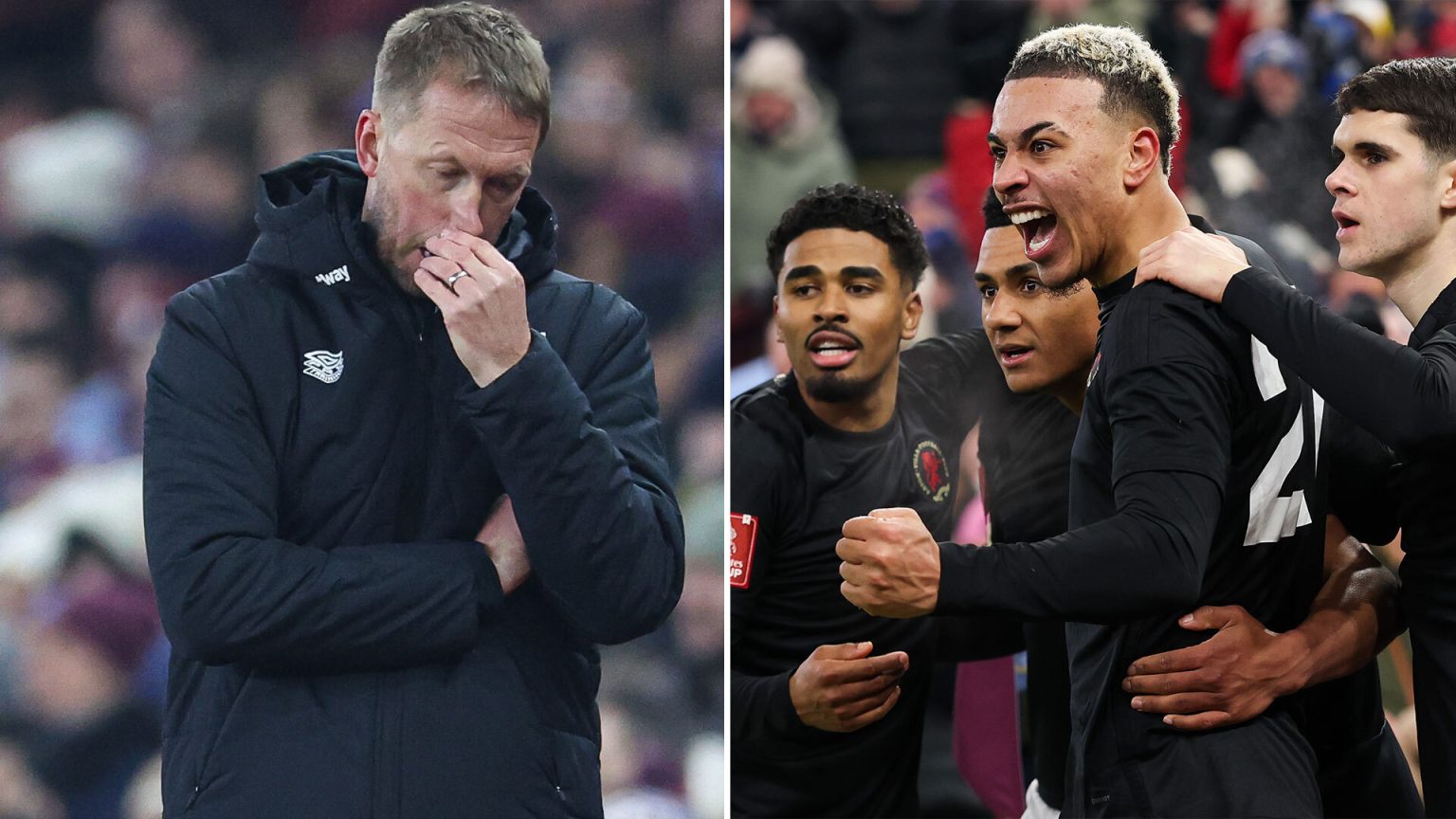Morgan Rogers’ late goal sealed a dramatic 2-1 victory for Aston Villa against West Ham United in the FA Cup third round, crushing Graham Potter’s hopes of a fairytale return to management. The match, commemorating Villa’s 150th anniversary, was a rollercoaster of emotions, punctuated by controversial decisions and a spirited comeback from the home side.
The first half saw West Ham draw first blood, with Lucas Paqueta capitalizing on a well-executed attack to score his first goal in a month. Mohammed Kudus’ long pass found Crysencio Summerville on the right, who then set up Paqueta for a precise finish. Both teams then suffered injury setbacks, with Niclas Fullkrug and Ross Barkley making way for Danny Ings and Amadou Onana, respectively. While West Ham maintained their attacking intent, Villa’s offense struggled to gain traction, perhaps weighed down by a demanding January schedule that included Champions League and Premier League fixtures.
The second half witnessed a rejuvenated Aston Villa side. Though initially lacking a cutting edge, their pressure eventually began to yield results. A powerful shot from Ian Maatsen forced a save from West Ham goalkeeper Lukasz Fabianski, signaling a shift in momentum. The equalizer came in the 70th minute, again stemming from Maatsen’s effort. Fabianski couldn’t hold onto the Dutchman’s shot, and while Ollie Watkins was in the vicinity, it was Onana who capitalized on the loose ball, poking it home from close range. The goal, however, was shrouded in controversy as it originated from a corner wrongly awarded, a decision that sparked vehement protests from West Ham players.
This controversial equalizer proved to be the catalyst for Villa’s complete turnaround. Just six minutes later, Watkins orchestrated the winning goal, breaking free on the left flank and delivering a pinpoint cross to Rogers, who expertly tucked it away for his seventh goal of the season. This rapid succession of goals energized Villa, who almost extended their lead when substitute Jacob Ramsey’s shot rattled the woodwork.
Graham Potter’s return to management after a 21-month hiatus, following his dismissal from Chelsea, was thus marred by defeat, ironically against the same team that sealed his fate at Stamford Bridge. Despite early promise and a positive start, West Ham were unable to maintain their lead, ultimately succumbing to Villa’s resurgent second-half performance. The match highlighted the work that lies ahead for Potter as he endeavors to reshape his new team. The defeat also prevented West Ham from breaking an unwanted record – equalling the longest streak of home FA Cup defeats for a league club.
The win, celebrating Villa’s 150th anniversary in their commemorative all-black kit, was a testament to their resilience and ability to capitalize on opportunities, albeit with a touch of fortune. The victory showcased the team’s depth and attacking prowess, ultimately overshadowing West Ham’s early dominance and leaving Potter to ponder the challenges that lie ahead in his new role. The match, while a celebratory occasion for Villa, served as a harsh reminder for Potter of the competitive nature of the FA Cup and the demanding task of rebuilding a team.











